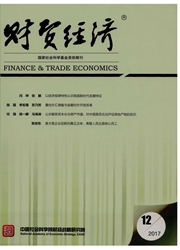

 中文摘要:
中文摘要:
本文基于一个内含购房决策的两阶段家庭最优消费模型,首次将房价上升对居民消费倾向影响的财富效应、流动性约束效应和替代效应综合在统一的理论框架内。通过推导代表性家庭的购房时间和在租房和自有房两个阶段的最优消费路径并进行数值模拟,我们发现房价上升时租房家庭因推迟购房而增加当期消费,自有房家庭则因住房收益的增加而增加当期消费。基于国家统计局住户调查数据的实证研究进一步证明,房价上升总体上导致我国城镇居民消费倾向上升。本文最后提出了谨慎抑制房价并通过发展质量优良的公租房提升居民居住满意度和幸福感的政策建议。
 英文摘要:
英文摘要:
Based on an inter-temporal optimal consumption model with housing tenure decision, this paper synthesizes the wealth effect, liquidity constraint effect and substitution effect of rising house price on household consumption propensity in a unified framework. By deriving and simulating the optimal consumption of a representative household while renting and owning house, we find that rising house price will push up the household consumption propensity. These findings are supported by the empirical study based on the urban household survey data in China. We finally summarize the policy implications accordingly.
 同期刊论文项目
同期刊论文项目
 同项目期刊论文
同项目期刊论文
 期刊信息
期刊信息
